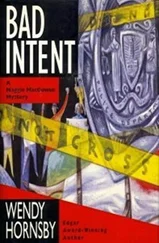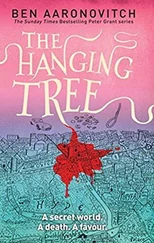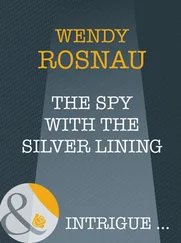I laughed; Lew was off the mark. So far, anyway. The germ of a film idea was beginning to take form. Why was Park Holloway at Anacapa? “Lew, don’t you think that if Roger needed some undercover work done, he would ask Kate?”
He laughed at that, catching the unintentional double entendre before I did.
“Sorry,” I said, “no mystery. I’m just taking a break.”
He was quiet for a moment, seemed to be thinking over something. After a couple of shallow breaths he started to speak, hesitated, finally managed to get his words out.
“I suppose maybe you need a break.” Another uncomfortable pause. “Kate tells me you recently lost your husband.”
Kate is not a gossip, so I wondered how the topic came up, unless he asked.
I said. “It’s been almost a year.”
“Must be tough,” he said. “You doing okay?”
Watching the street ahead, I nodded. “I am, thanks.”
“Almost a year, then?”
I waited for whatever was coming next, though I had some notion where this was headed.
“You, uh, managing to get out some?”
“Taking it slow,” I said. “I’ve been seeing someone recently. Nothing serious, but it is nice to be out there again.”
He still had his hand looped in the crook of my elbow. “Good to hear that,” he said. “Good for you.”
“Lew?” I put my free hand over his. “Why did you ask?”
He laughed, a sudden nervous burst that scared a cat crossing the sidewalk in front of us.
“I’m a normal guy, Maggie. Just a warm-blooded, normal guy. Can’t blame me for being interested.”
“Thank you,” I said. “Means a lot to me to hear that.”
We walked the last block into the Village in a companionable silence.
Funny, I thought, that Lew brought up Mike, my husband, because I had been thinking about him a lot lately, maybe because the anniversary of his death was approaching. Several people had told me that I shouldn’t make any major decisions until a full year had passed, one full cycle of holidays and seasons, birthdays and anniversaries without him. But life has a way of spinning along on its own course. My last year had been full of changes and challenges and decisions that had to be made, ready or not. Every time one arose, I wished for Mike’s counsel, but he simply was no longer there.
I was grateful for Lew’s quiet company that morning.
Rows of potted flowers in full bloom lined both sides of Main Street, bright color against the gray day. Anacapa Village, a two-block strip of restaurants and small stores, never looked prettier.
The incorporated town of Anacapa sits on the far northwestern edge of Los Angeles County, the last stop before the Ventura County line. The site of old downtown had been, in succession, a Chumash Indian encampment, the center of a vast Spanish colonial rancho, then a Mexican farm. After the Yankees showed up halfway through the nineteenth century, a road was built through a pass in the Santa Monicas to connect inland farms with a seaport-which was never more than a boat landing-in what is now Malibu, and intensive commercial agriculture got under way. Anacapa, the town, grew up at the crossroads of the coast access road and El Camino Real, the original Spanish road that still runs, with interruptions, from Baja to San Francisco.
I doubt that downtown Anacapa ever amounted to much more than a dry goods store, a feed mill, and a saloon or two until the suburban population boom hit the area after World War II. The route of El Camino Real became the 101 Freeway. As the freeway stretched north, like a flooding river pushing detritus downstream, layer after layer of new tract homes accompanied its flow. The new residents commuted to good jobs at the nearby Jet Propulsion Lab or the Howard Hughes Research Lab in Malibu Canyon, or into the entertainment production centers down the freeway in the San Fernando Valley.
Old downtown died a natural death, largely out of lack of interest, as new malls opened. But recently, some enterprising souls had rechristened the retail strip along Main Street “The Village,” spruced up the sidewalks and façades, and attracted an interesting collection of pretty good restaurants and a couple of boutiques. For the college population, the restaurants along the quaint-ified two-block strip were a godsend, respite from grim cafeteria fare.
As Lew and I walked past the family-run Italian trattoria that had been Mike’s favorite-they had catered Mike’s wake-I saw one of the owners, Roberta, setting up for the day. The restaurant wasn’t open yet, but when I rapped on the window and waved, Roberta came to the door.
“Ciao, bella,” she greeted me, kissing me on both cheeks. “We’re not open yet. Half hour.”
After some negotiations and a consultation with her brother Carlo, who was the chef, I ordered three large “everything” pizzas for Sly’s crew. Lew and I would pick them up after we had eaten our soup at the Vietnamese place next door. By the time we headed back to campus with three large pizza boxes neatly tied together, it was drizzling again.
The phone in my pocket buzzed. I took it out to see who was calling. With my aging mother recovering from a knee replacement and my daughter, Casey, away at college, I always looked.
“It’s Kate,” I told Lew, and answered the call when he nodded.
“Is Lew Kaufman with you?” she asked.
“We’re out here getting wet,” I told her.
“If I hear thunder, should I come looking for you?”
“Please.” I told her the street we were on. Hers wasn’t an idle offer, nor was my acceptance; I am pathologically afraid of thunder and lightning.
“Pass this to Lew,” she said. “We have a meeting scheduled with Holloway, his conference room, at one. You, Lew, me, and Joan Givens from Foundation.”
“Fast work,” I said.
“Holloway balked a bit at first. But when I dropped your Uncle Max’s name, mentioned something about the mother of all lawsuits, he suddenly saw the light.”
“I wonder if simply dropping Max’s name qualifies as a billable hour.”
“He’ll earn several today,” she said. “I was about to say, Max will be at the meeting, too.”
“How did you manage that?” I asked her.
“I promised him dinner at my house, tomorrow. My mother-in-law is taking the last of the Christmas tamales out of the freezer. Linda wants you to come, too. She said we had so much fun making the tamales together that you should be there to help finish them off. And please bring your mother.”
“Sounds like fun,” I said. “But Jean-Paul invited Mom and me to a reception tomorrow for a touring French pianist. One event a day is about all she’s up for.”
“Uh-oh, the beau finally meets Mom,” she said, sounding like the teenage roommate she had once been. I know I blushed.
“Too soon to call him that,” I said sternly.
“Have fun.” And then, in parting, added, “Tell your mom I’ll call her first thing Sunday morning to get all the details.”
I had no doubt she would.
By the time we got the pizzas delivered to Sly’s work crew, they were cold. But no one seemed to care, the appetites of youth being boundless.
Sly was quiet when we took him aside and told him that Holloway was meeting with us and that he shouldn’t worry about his sculpture being taken down in a year. Accustomed to disappointment, he never dared to hope for anything good.
“Should I go talk to him?” he asked. “Just to make sure?”
“That’s up to you,” I said. “But it isn’t necessary. What Holloway tried to do was personal to you, Sly, but the issues involved were larger than how long your piece hangs in the lobby. The college president tried to bypass the legal decision-making processes of the college, so the Academic Senate stepped in. I think that, after some chest-beating, Holloway will understand why he cannot do what he said he would.”
Читать дальше












